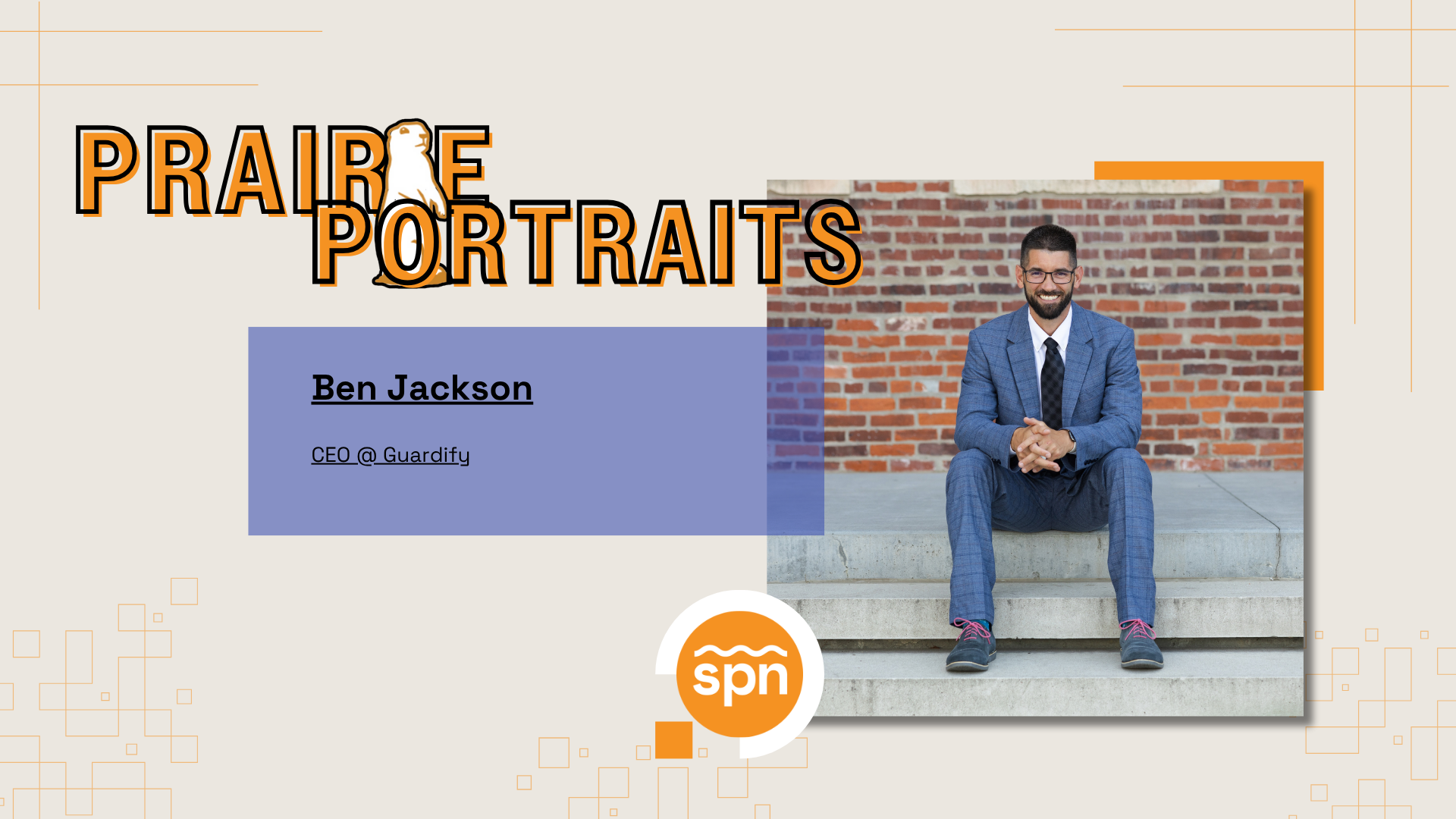Stefanie Monge, the CEO of Welcor Enterprise Yoga and Founder of Think Start Do, has spent a decade working with entrepreneurs all over the world. She moved from Omaha to Australia, Asia, Europe and back again gaining insight and experience as to what it takes to form and scale startups. Last week, Monge spoke at the Midwest Entrepreneurs Conference organized by UNO’s Center for Innovation, Entrepreneurship and Franchising.
SPN sat down with Monge to talk about her entrepreneurial journey, how Omaha’s startup scene has changed over the years and what she thinks fledgling businesses are doing right.
SPN: You work with a lot of entrepreneurs locally and globally, but where did your entrepreneurial journey start?
I didn’t have this word “entrepreneur” until I was out of college and working at the Omaha World Herald. That was the first time I started to have an idea of what it meant to be a startup. It was when Silicon Prairie News was starting and it was the beginning of Omaaha’s journey to becoming a startup hub. It was an exciting time and I had the opportunity to not only meet these people and be introduced into that world but also to relay that information to the public and to show people that entrepreneurship is a viable career path.
I went to work for a startup called Graffiti Tracker as the head of marketing and PR. I thought I had found my place within this ecosystem, whereas as a reporter, I was more on the outside looking in. I was there for a little over a year and realized that I had a dream to travel that wasn’t going away. I basically sold everything I owned and bought a plane ticket to Australia. I felt undecided about what I was going to do next so I gave myself time to explore and made my way to Asia. I did yoga training in India and became a certified yoga teacher, and then moved to England. I had the idea to start a corporate wellness business in London where my husband is from.
SPN: Was that the start of Welcor?
We ended up moving back to Omaha towards the end of 2012. When I moved back here and I was applying for jobs, I would only apply for jobs that I felt were perfect for me. That list was short so I made a promise to myself to start my business. Corporate wellness programs were flourishing and I figured I could start my business with minimal overhead, especially if I concentrated on teaching on-site versus maintaining my own space.
I founded Welcor Enterprise Yoga in 2013. I had been consulting and freelancing for more than 8 years, but Welcor was my first foray into entrepreneurship. I started working with tech companies like Omaha Code School, LinkedIn and HP. It ranged from ad agencies to insurance companies, non-profits, schools, all kinds of clients. I was teaching on-site yoga and mindfulness in a way that was accessible and practical and helping people to be more productive.
SPN: You’re also the founder of Think Start Do Women’s Summit. Where did the inspiration for that come from?
That was kind of born out of this feeling of loneliness or feeling like I knew there were other women who were hustling and going through these experiences and could use some support and company, not just online but in person. There’s a lot of value to physically being with another person who can relate to your experience.
I started Think Start Do in Chicago since it was a central place that was easy to get to. There were about 100 women in attendance and the conference was really focused on learning, collaborating and connecting women at various points in their entrepreneurial journey. I knew that I didn’t want it to just be a one-time event, that it was something I wanted to have reoccurring and grow into a community and an on-going source of support. I knew I wanted to do something in Omaha too.
Last year, I was the president of FemCity Omaha, a group of entrepreneurial women. I had tapped into this community of a couple hundred women who I didn’t really know. It was so cool for me, as someone who’s been here for so many years, to be reminded that I don’t really know everybody. That reinforced the idea that we should do an Omaha event, so in February we did a Think Start Do event here.
SPN: What are some themes you’ve been covering at your conferences and speaking engagements?
At all of my Think Start Do events this year, the theme has been around vision––getting clear on your individual vision and collective vision for a greater future. That’s meant a lot of different things to a lot of different people, entrepreneur or not. In this talk about vision and setting goals, I have a process of how to be mindful and intentional. The piece that I really felt dangling for everyone was the follow-through. It’s really awesome to take the time and set goals, but if planning is all you’re ever doing, you’re never going to achieve them. Ultimately, when I think about what separates entrepreneurs from wantrepreneurs, it’s the ability to follow-through.
SPN: Other than a lack of follow-through, what are some things holding people back?
Fear. Fear of taking a really big risk, fear of being judged, fear of failing. I think fear is probably the biggest thing that stops people before they even get started. Another thing is when you’re striving for perfection––as someone who is a recovering perfectionist––just being able to walk away from things when they’re good enough. Letting go of that idea that it has to be perfect and being more concerned with “How do I get this done?” Or thinking that you have to know every step before you get started. I think as an entrepreneur there’s so much learning as you go. If you wait until you think you have all the answers, you will literally never get started. You have to be able to embrace that uncertainty and figure out how you’ll navigate the course that you know is always changing.
SPN: The collusion of mindfulness and creativity plays a big part in your ventures. Why is that blend so effective for entrepreneurs?
Perfection can be the enemy of creativity, also judgment and criticism. With mindfulness, it’s all about letting go of your judgment and letting go of your expectations to just allow yourself to experience things as they are without being attached to the outcome. Creative expression can be a powerful release and I think for people like myself who don’t consider themselves creative, introducing mindfulness into the process helps to ease expectations and makes it feel like a more guided process. There’s a lot of anxiety and stress reduction that comes with doing something creative and being able to express yourself.
SPN: Where do you see room for improvement in the startup scene?
One thing I see with startups, not just Omaha but everywhere, is the lack of diversity. When I talk to people on how to focus on inclusion and diversity, with a lot of startups it’s like “We have an opening. Tell your friends,” and it replicates the same employee. It closes off the opportunity to have a more diverse pool of applicants. I’ll be the first to admit, as someone who organizes tech meetups and has to find women speakers when we have a highly technical topic, there are fewer women available. To solve the diversity issue, you literally have to try harder.
There’s something important and validating about looking around the room and not being the only person who looks like you. We have to figure out how to draw a more diverse of group of people into this ecosystem. I feel like they’re there, but we’re not necessarily connected. We need to foster an environment that feels more inclusive.
SPN: How are women changing entrepreneurship in Omaha?
As far as women, I think there are lot more women who are visible in the community as leaders, like Erica Wassinger. I think having these women role models is important for women who are just starting out or are in high school or college. It will continue to shift and there will continue to be more women getting involved. Groups like FemCity and Ladies Who Launch Omaha are coming together in a supportive way too.
SPN: How have you seen entrepreneurship in Omaha change over the last ten years?
Ten years ago we were trying to convince people that “entrepreneur” was a real job title. Now, that stigma is definitely reduced. To say, “I work at a startup,” or “I own a startup,” it’s acceptable. I even gauge how comfortable I am saying that to people and I think now it’s a confident statement and not a big deal.
There seems to be a lot more opportunities for funding, and I think in general, the more that Omaha gets a reputation as a place for startups, that will continue to bring in funding. Besides raising funds, the thing you have to have is grit, and back to that follow-through, the ability to keep going.





